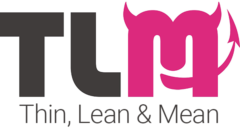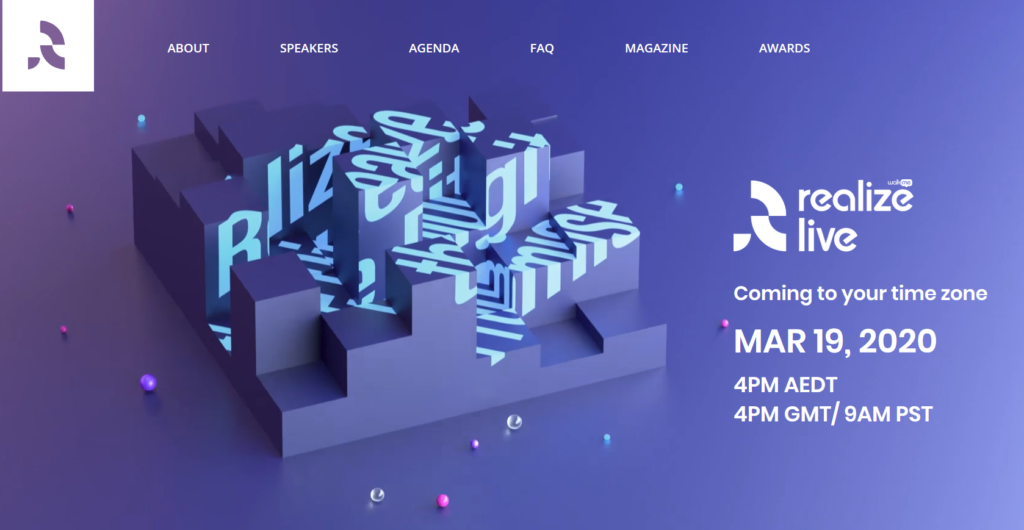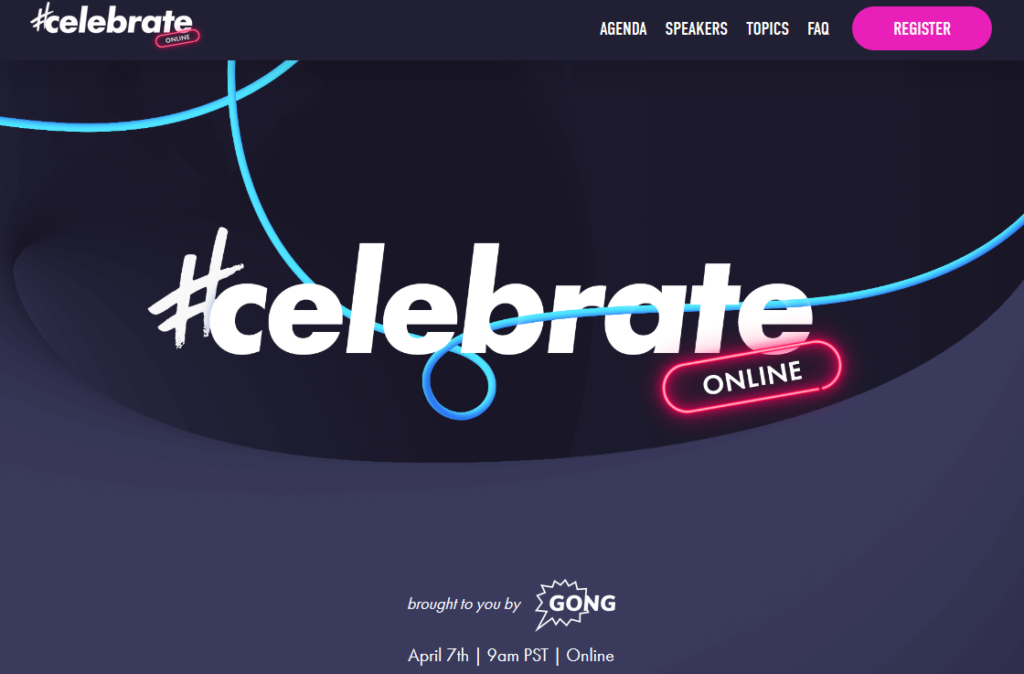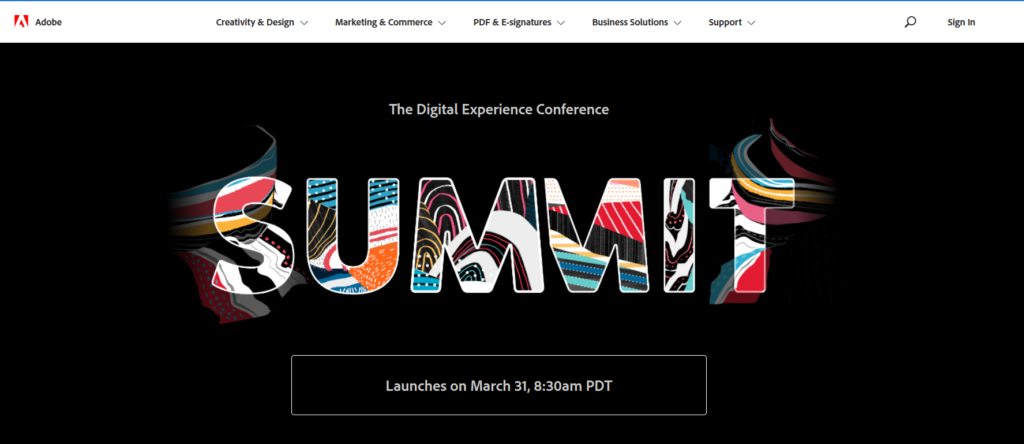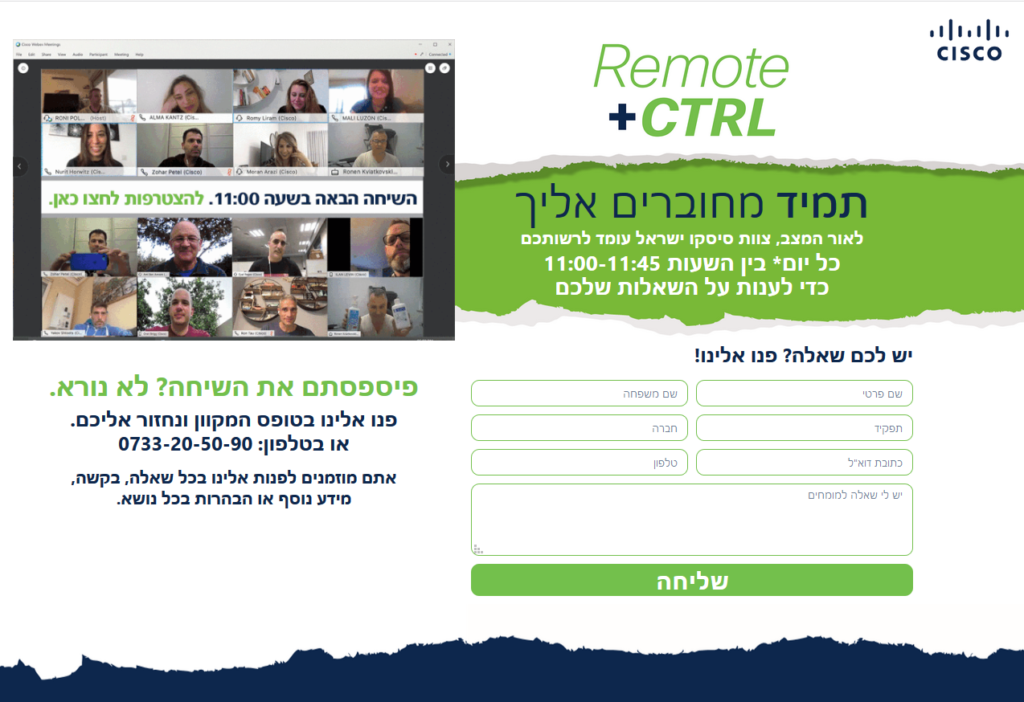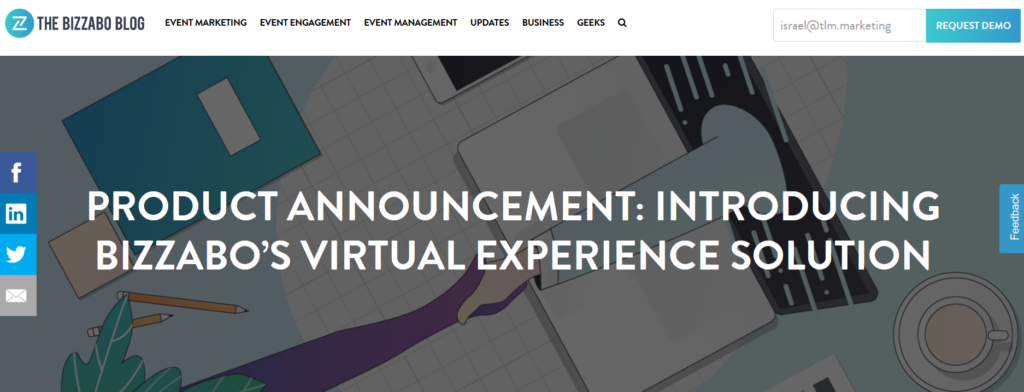The far-reaching crisis brought about by the outbreak of the COVID-19 virus has affected everyone. Businesses of all shapes and sizes are struggling to maintain marketing and sales activities.
Their goals: maximize available opportunities and develop a pipeline of potential sales opportunities for the post-COVID-19 crisis.
The current crisis is characterized primarily by social distancing. Many of the important building blocks of B2B marketing and sales activity, such as face-to-face meetings and events, have been cancelled. As a result, new means of communication and relationship management are being created and put in place.
Also important in the B2B context are the new and prominent characteristics of B2B buyers:
- They are working from home
- They have many free calendar slots due to cancellations of meetings and events and to the virtual halt of commutes to work
- They are more interested in learning, consuming content, and getting updated
- They are more inclined towards online engagement
- They are striving to keep business going.
As a result, B2B audiences spend more time online, participating in online meetings, attending webinars, reading online publications and interacting with peers on social media. Consequently, digital is undergoing a fundamental transformation: once an important marketing channel, it is emerging as the only available marketing channel.
Also, especially during this time of crisis, it is important to ensure that marketing budget spending is fully aligned with the company’s objectives and optimally reflects its sales goals. Ultimately, it should be allocated for the purpose of influencing customers’ decision making.
I suggest using the customer decision journey model to maximize marketing impact by best identifying the right decision makers and determining what matters to them most at each stage in the sales cycle.
The Re-adjusted Digital B2B Customer Decision Journey
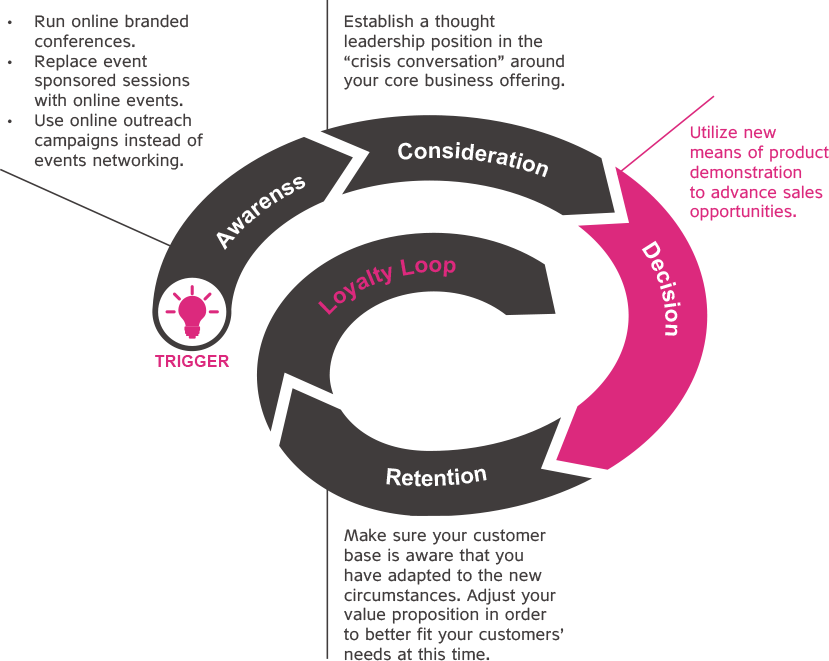
Awareness
At this stage, face-to-face engagements at events and conferences play a significant role in directing the attention of potential customers to innovative and intriguing opportunities.
Here are the alternatives that I see emerging:
Online Conferences as an Alternative to Branded Conferences
Branded conferences are meant to create enthusiasm among existing customers and partners and to attract new customers. The main reason for holding a branded event at the beginning of fiscal year is to generate momentum that will ultimately be reflected in the year-end results. Cancelling such an important business engine can have serious consequences.
WalkMe, a digital experience tech leader, had to cancel their first face-to-face customer event, WalkMe Realize, due to the coronavirus crisis. Rather than postponing the event or cancelling it altogether, they decided to turn it into an online event. Within just a few days, they were able to produce a five-day online event and broadcast it from four different locations worldwide. They experienced great success in terms of participation and engagement rates.
Other brands that are holding virtual conferences:
Gong.io
Adobe:
Online Events as an Alternative to Sponsored Participation at an Industry Event
Sponsoring an industry event creates a statement of prominence and leadership. It also encourages the generation of leads from participant traffic at the event.
After the cancellation of the SaaStr 2020 event, which I was supposed to attend at the beginning of March, I received the following email from two of the sponsors of the event – Profitwell and Paddle. As I had originally registered for their event session, I was delighted to be able to participate in the online session they set up – “Stay at Home SaaStr“.

Online Events as an Alternative to Face-to-Face Event Meetings
For most, attending a professional conference is an opportunity to meet with potential prospects. The cancellation of events shouldn’t prevent you from e-contacting prospects that you would have met at the conference itself. The list of attendees is usually published for registered participants, and often includes a variety of contact methods. These lists can be utilized to make contact and schedule online face-to-face meetings.
Here is a presentation (in Hebrew) by Tzvika Avnery of GrowthPack.co which explains how event attendees can be located and contacted via LinkedIn:
Consideration
At the Consideration stage, potential customers are comparing several competitive solutions, learning about the vendors’ products and services, and discussing them with peers and colleagues. The objective of this stage is to establish market leadership and prominence.
Establishing Thought Leadership in Light of the COVID-19 Crisis
In order to gain prominence given the realities of this crisis, vendors are now taking ownership over the “crisis conversation” around the business activities relating to their core offerings.
For example, Monday.com has taken the lead in the conversation regarding project management in a working-from-home reality:
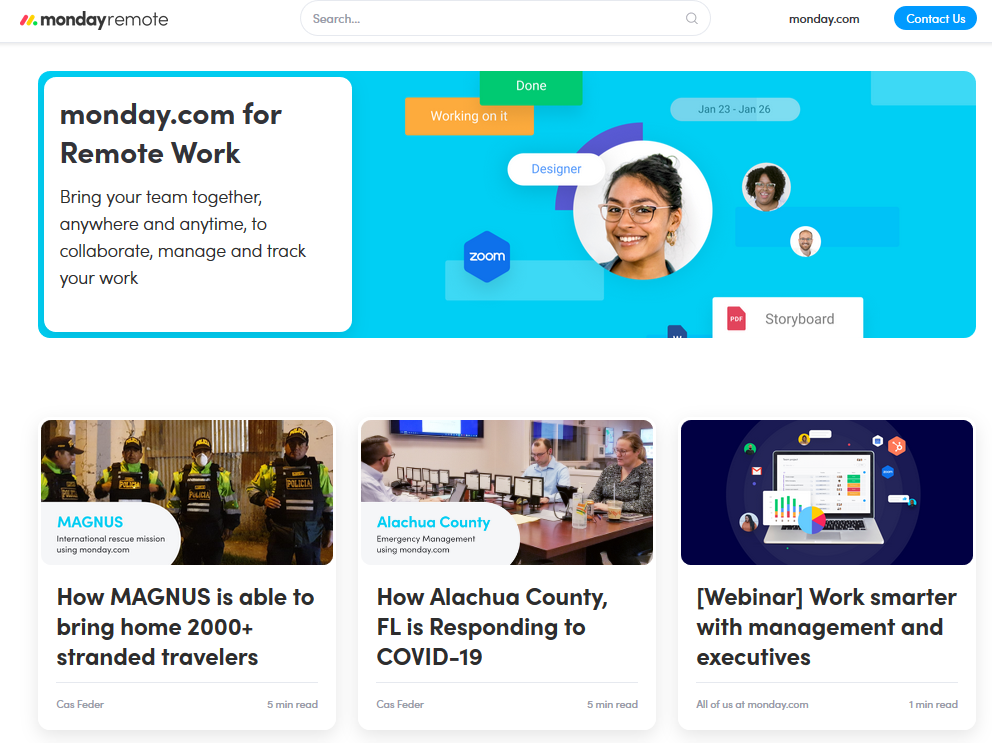
Cisco Israel is leading the conversation about the technological implications of working from home, offering live webinars, a daily live broadcast and a VOD library of experts’ videos.
Decision
The final stage before the submission of the purchase order.
a new startup called Cyberlabs is offering a solution which is particularly relevant to the new crisis-driven reality. They have suggested taking the demo stage a step further by replacing the demo with a cloud-based POC.
This enables the client to examine the solution within a nearly real-life environment. The fact that the POC doesn’t require travel to the clients’ premises is of course a huge advantage these days.
Retention
At this point, maintaining a high level of satisfaction and top-of-mind brand awareness are critical for encouraging recurring purchases of the product (in a SaaS model) or re-purchases of other products and services (in more traditional models).
During the current COVID-19 crisis, we are seeing brands that are reassuring their customer bases that they are doing their utmost to maintain business continuity and a high level of service.
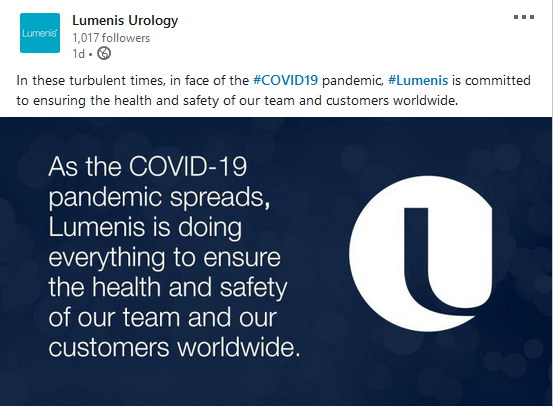
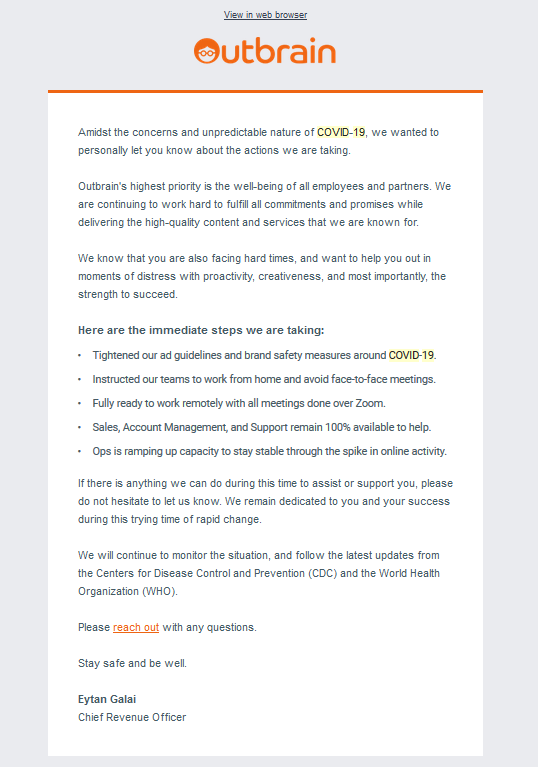
We are also seeing brands that are adapting to emerging demand and adjusting accordingly. Bizzabo, a leading events and conferences community platform, has recently announced a partnership with Kaltura to offer a new joint service for online events management.
Are you familiar with other marketing and sales activities that enable companies to further engage with customers and prospects during the COVID-1 crisis? Please submit them in the form below and I will add them to the post.
